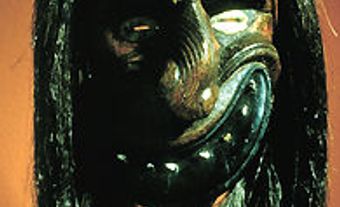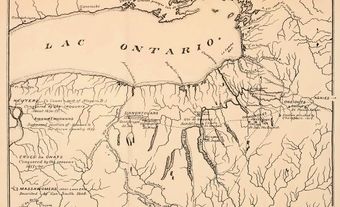Theosophy
Theosophy, philosophical system based on a belief in a universal, eternal principle fundamental to all life. The mystical overtones of its proposition of the fundamental identity of all "Souls with the Universal Soul" are similar to the doctrines of Buddhism and Hinduism. The Theosophical Society was founded in New York in 1875 by Helena Petrova Blavatsky and others, "to form the nucleus of a universal brotherhood of humanity, without distinction of race, creed, sex, caste or colour." The society has also sought to encourage study of comparative religion, philosophy and science.
The first Canadian branch of the society was formed in Toronto in 1891 by Algernon Blackwood, Dr Emily Stowe, Dr Augusta Stowe-Gullen and newspaper editor Albert Smythe (father of Conn Smythe, who was also a lifelong member). In 1919, an autonomous Canadian section, The Theosophical Society in Canada, was formed. Albert Smythe was its head and first editor of its journal, The Canadian Theosophist, which has published continuously ever since. The society was closely associated with the Group of Seven, notably Lawren Harris. Among other prominent members were critic William Arthur Deacon and Roy Mitchell, first director of Hart House Theatre.
Related organizations in Canada include the Canadian Federation of the Theosophical Society, La Société théosophique du Québec and the United Lodge of Theosophists. Active lodges are in Montréal, Toronto, Hamilton, Edmonton, Calgary, Vancouver and Victoria.

 Share on Facebook
Share on Facebook Share on X
Share on X Share by Email
Share by Email Share on Google Classroom
Share on Google Classroom


